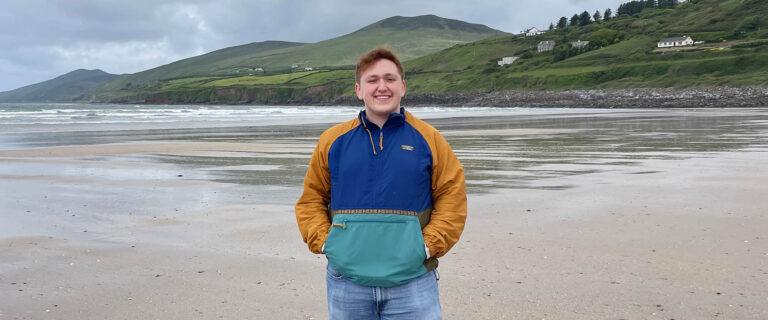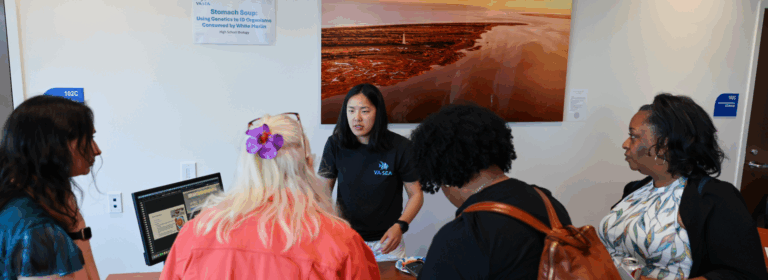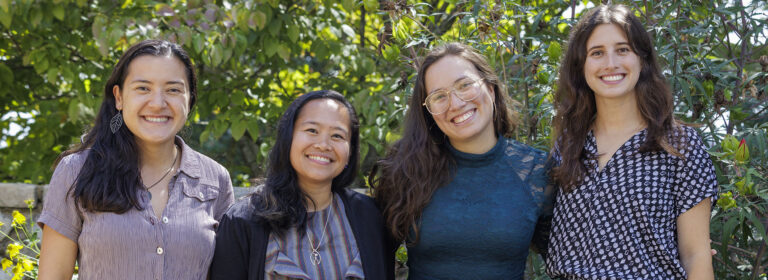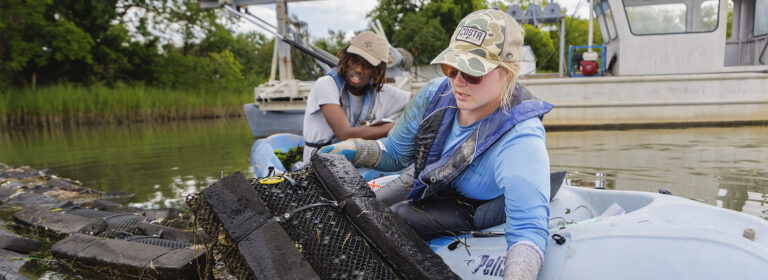Knauss Fellow uncovers the social side of coastal science
Although Katherine Longmire-Lopez studied blue crabs and ocean acidification — marine sciences — she introduces herself as an “earth scientist,” in a nod to the social sciences she learned about as a Knauss Fellow.
“The social sciences are just as crucial to environmental work as the earth sciences,” Longmire-Lopez said. “Biology, chemistry, and physics can explain why climate disasters occur, but only through social scientists can people learn to work together and adapt to those changes.”
As the socioeconomic specialist for the National Sea Grant Office, Longmire-Lopez gained an appreciation for the psychology, sociology, and economic components of coastal research. Communicating flood risk, calculating the benefits of a living shoreline, and understanding why consumers choose to buy different types of seafood — each of these require social sciences.
As part of her Knauss Fellowship, Longmire-Lopez identified where social sciences were embedded in Sea Grant’s mission and activities. She analyzed Sea Grant’s biennial reports and strategic plans from the last decade to show where social sciences were involved in Sea Grant projects and focus areas. She also identified which state Sea Grant programs had leadership trained in social sciences. After completing the analysis, Longmire-Lopez presented her findings about the spread of social sciences across the Sea Grant network.
“Social science is everywhere but where exactly? Which projects?” Longmire-Lopez said. “I would scour reports and the strategic plans in order to show which programs are heavily involved in social science, and distinguish things like ‘This one’s more economic focused,’ versus ‘This one’s more culturally focused.’”
Beyond the social sciences involved in Sea Grant projects themselves, Longmire-Lopez also focused on economics as a tool to show the impacts of Sea Grant projects through annual reporting. During her fellowship, she worked with her mentor, Alison Krepp, the Social Science and Economics Lead for the National Sea Grant Office, to promote economic valuation guides for Sea Grant projects and answer technical questions about economic value.
“Biology, chemistry, and physics can explain why climate disasters occur, but only through social scientists can people learn to work together and adapt to those changes,” Longmire-Lopez said.
Longmire-Lopez arranged for guest speakers to discuss relevant topics, like collecting baseline data to show the status quo before a project, or estimating the value of workshops held virtually during the pandemic.
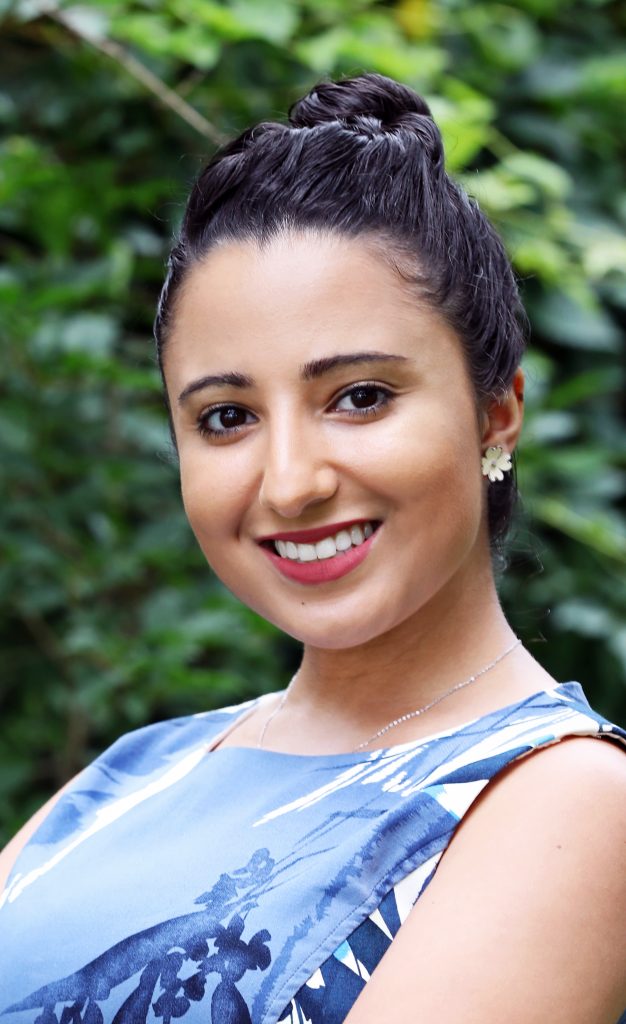
At the end of her fellowship, Longmire-Lopez helped to create the 2020 Reporting Digest, a document that included economic valuation examples from around the Sea Grant network — and explained why the estimates were good examples, or how they could be improved with additional information.
In addition to her social sciences projects, Longmire-Lopez worked with Ohio Sea Grant Knauss Fellow Margaret Beetstra at the NOAA Office of Education to organize the NOAA Live! webinar series for kids.
Twice a month, the two fellows identified potential speakers, brainstormed topics, and moderated the question-and-answer component of the webinar. During Longmire-Lopez’s fellowship, NOAA Live! webinar topics included tornadoes, Hawai’ian corals and oral storytelling traditions, and an overview of NOAA science conducted entirely in Spanish.
“This was started when schools shut down in spring 2020, to keep kids engaged in science,” Longmire-Lopez said. “It was really rewarding to continue that, and it was nice to get to know another fellow in the virtual space.”
After her fellowship, Longmire-Lopez hopes to continue using her project management skills at NOAA and will bring with her a newfound appreciation for the impact of social sciences in coastal science.
“Social sciences aren’t just something to be ignored. They’re a very important part of the scientific process,” Longmire-Lopez said.
Takeaways:
- As the socioeconomics specialist in the National Sea Grant Office, Knauss Fellow Katherine Longmire-Lopez gained an appreciation for the role of social sciences in Sea Grant.
- She analyzed the spread of social science projects within the Sea Grant Network, and learned about the economic principles used to value Sea Grant projects.
- Longmire-Lopez also organized and moderated NOAA Live! webinars geared toward keeping school-aged kids engaged with science.
Photos by Aileen Devlin | Virginia Sea Grant
Published Feb. 17, 2022.
“There were questions like ‘Can I use this method to value this beach cleanup, or do I have to use a different method?’ or ‘Can I value this in acres versus meters?’” Longmire-Lopez said.

